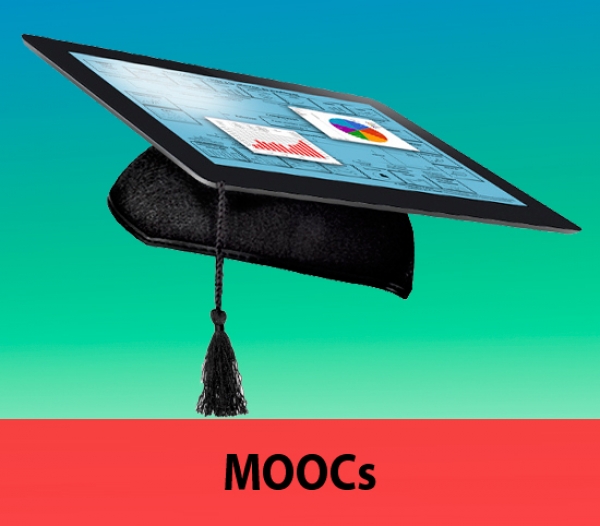MOOCs
MOOCs
Massive Open Online Courses (MOOCs) are a new term in distance education. Historically MOOCs have their roots in the movement of Open Educational Resources (OER). The existence of MOOCs is situated in 2008, where George Siemens and Stephen Downes offered an open online course “Connectivism and Connective Knowledge” in the University of Manitoba, Canada (Tharindu et al., 2013). In 2012, "The New York Times" coined that it was “the year of the MOOC” and by 2013 MOOC included in the Oxford English Dictionary.
A working definition of a MOOC is illustrated as “an online course open to anyone without restrictions (free of charge and without a limit to attendance), usually structured around a set of learning goals in an area of study, which often runs over a specific period of time (with a beginning and end date) on an online platform which allows interactive possibilities (between peers or between students and instructors) that facilitate the creation of a learning community. As it is the case for any online course, it provides some course materials and (self) assessment tools for independent studying” (EU, 2013).
There are two main classes of MOOCs (Conole, 2013):
cMOOCs, inspired from the pedagogical theory of connectivism (connectivist-MOOCs).
These courses based on the pedagogical model that support the principles of peer learning, collaboration and social networking. cMOOCs, run on open source learning platforms and are guided by the academics from different universities (many courses are offered from Athabasca and Manitoba Universities in Canada). There are examples included: David Wiley’s course on "Open Education", "Personal Learning Environments and Networks (CCK11)",and "Learning Analytics (LAK12)".
xMOOCs, inspired from the pedagogical theory of cognitive-behaviourist approach with more self-paced learning (eXtension of something else”-MOOCs).
These courses based on the pedagogical model that support the principles of traditional university courses (lecture, instruction, discussion etc.). xMOOCs, run on proprietary specialist software platforms. There are technology providers (Udacity, EdX, and Coursera) and prestigious universities (Harvard, Stanford, MITx) that offer their online versions of traditional courses.
References
- Conole, G. (2013)MOOCs as disruptive technologies: strategies for enhancing the learner experience and quality of MOOC, Revista de Educación a Distancia, 2013
- Tharindu R. Liyanagunawardena, Andrew A. Adams, and Shirley A. Williams. “MOOCs: A Systematic Study of the Published Literature 2008–2012.” International Review of Research in Open and Distance Learning 14 (2013): 201–27.
- European Commission. “Report on Web Skills Survey: Support Services to Foster Web Talent in Europe by Encouraging the use of MOOCs Focused on web Talent—First Interim Report.” May 2014. Available online: http://goo.gl/0wIibc
Warning: count(): Parameter must be an array or an object that implements Countable in /home/486212.cloudwaysapps.com/bmcahnqrrr/public_html/templates/gk_events/html/com_k2/templates/default/item.php on line 236






